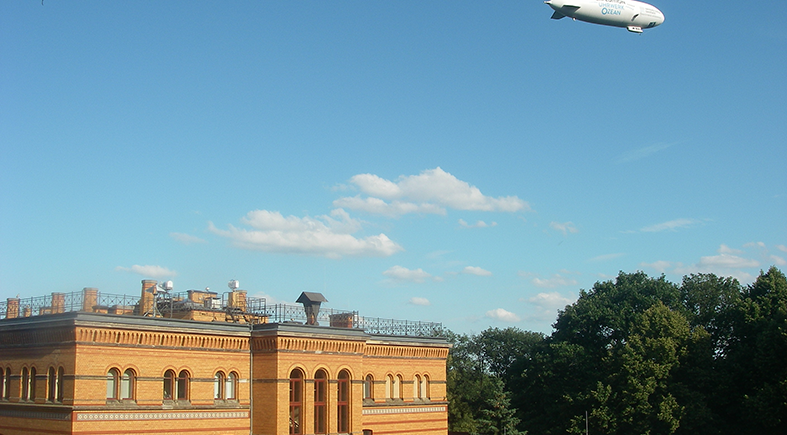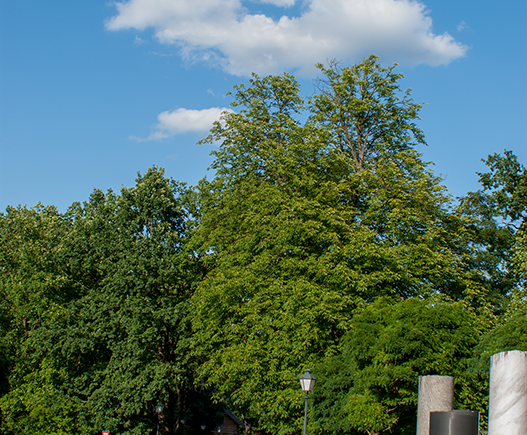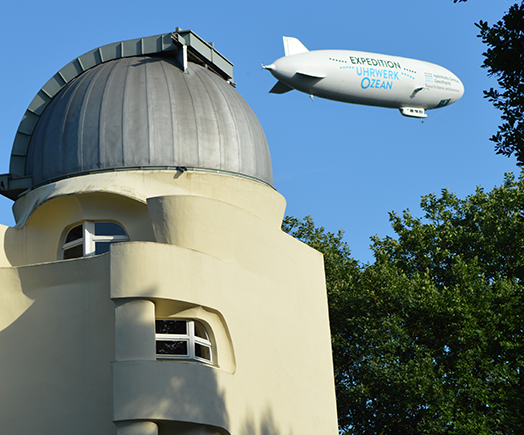That’s science: After the main work was done for the expedition „Clockwork Ocean“, coordinated by our colleagues from Helmholtz-Zentrum Geesthacht – Centre for Materials and Coastal Research, the scientists flew back from the Baltic Sea with their zeppelin and continued to gather data over land.
The GFZ’s scientists working in the Demmin region (Mecklenburg-Vorpommern, Germany) were glad that the zeppelin’s crew offered to take “pictures” with one of their special cameras. The device is a hyperspectral camera recording up to one thousand different bands of the light spectrum. Our scientists use the data for comparison with their own data. They want to find out how climate change and changes in land use affect terrestrial ecosystems. In another project, coordinated by the Leibniz Institut for Freshwater Ecology and Inland Fisheries, scientists explore how artificial light affects ecosystems.
GFZ’s Christopher Kyba works within the project “Loss of Night” and co-authored an important paper on the subject. His colleague Andreas Jechow from the IGB spotted the zeppelin whilst it flew over Lake Stechlin and took a picture with a fish-eye lens. The crew took pictures with the hyperspectral camera. Maybe some future collaboration will come out of this, who knows? That’s science.
29.06.2016: Josef Zens
>>Hi-Tech-Zeppelin ermöglicht neuen Blick auf die Erdoberfläche [GErman only]
>>Global atlas of light pollution










![[Translate to English:] Torsten Sachs in front of a climate station on a field](/fileadmin/_processed_/3/9/csm__TorstenSachs_bearbeitet_GS_4a1365ef84.jpeg)

![[Translate to English:] left image flood at the Ahrtal: image from above, several houses are flooded; left image:: Heidi Kreibich;](/fileadmin/_processed_/4/4/csm_Bild2_9af0130e9f.png)



![[Translate to English:] Start der Vega Rakete](/fileadmin/_processed_/6/4/csm_20231201-kachel_Vega-VV23-launch_ESA-CNES-Arianespace_706716b68c.jpeg)









![[Translate to English:] Poster exhibition at the Brandenburg Hydrogen Day at the GFZ, some participants in the foreground](/fileadmin/_processed_/6/5/csm_Erster_Brandenburgischer_Wasserstofftag_GFZ_402fcec95e.jpeg)
![[Translate to English:] Group picture of the participants](/fileadmin/_processed_/9/4/csm_20231108_CAWa-Workshop-Tashkent_Gruppenbild_99ea779d8a.jpeg)

![[Translate to English:] [Translate to English:] Hörsaal](/fileadmin/_processed_/e/6/csm_H%C3%B6rsal_e21ac645fb.jpeg)


![[Translate to English:] The Delegations in the Historic Library on the Telegrafenberg. In the back there are from left to right, the Dutch Ambassador for Germany, Ronald van Roeden, the Dutch Minister for Education, Culture and Science, Robbert Dijkgraaf and the scientific director of the GFZ, Susanne Buiter.](/fileadmin/_processed_/d/b/csm_Kachel-2_9eba4b4212.jpeg)

